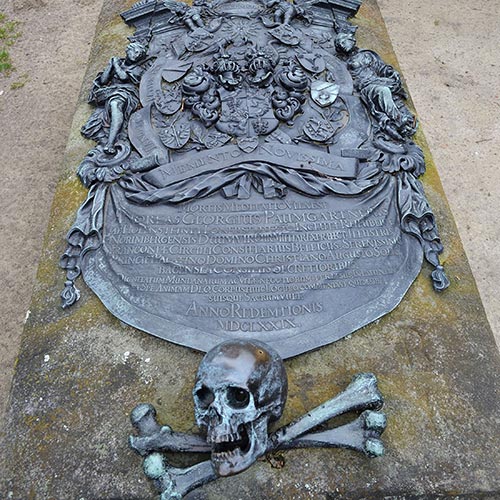WE ARE HERE FOR YOU:
Administration office times:
Mon, Tue, Thu & Fri: 9 a.m. to 12 a.m.
Mon, Tue and Thu: 1 p.m. to 4 p.m.
You may contact us by telephone or email.
Cemetery opening times:
April – September: 7 a.m. to 7 p.m.
October – March: 8 a.m. to 5 p.m.
December 6 – January 6: 8 a.m. to 4 p.m.
CONTACT:
Johannisstraße 55
90419 Nürnberg
Phone +49 (0)911 33 05 16
Fax +49 (0)911 33 86 61

